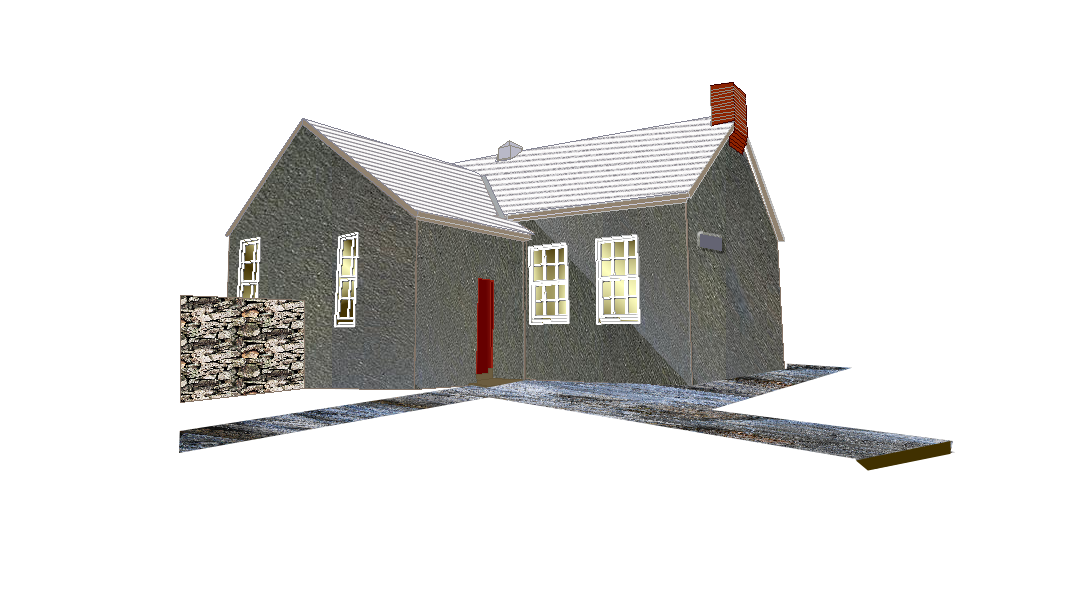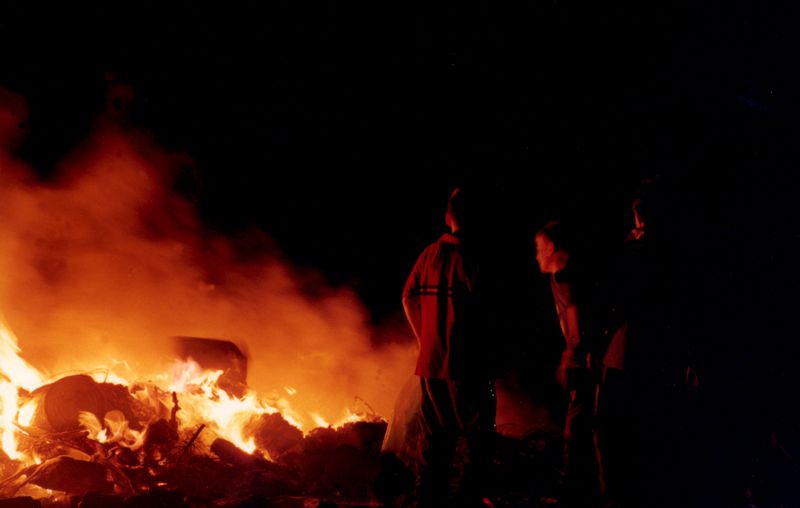Treasured Memories of Prison School
“Treasured Memories of Prison School”
As I write tonight I can’t help but remember the glorious time we had at the last school reunion, and how impressed we all were with the amount of work Julie Loftus, the Morrison girls, and the rest of the committee put into making it such a success. I, for one, appreciated having the opportunity to see all my old friends from so long ago. As I go down memory’s lane now I ask myself why, do we all make the long journey back? Why are we so dedicated and loyal to one another? First, I believe it can be said that we had many common denominators. We were poor, but no one looked down on anyone. We were all Catholic, and most of us walked the three miles to Mass on Sunday. We would run into each other on the journey, and we would talk and laugh about silly things. But the older folks taught us the value of being a Catholic, and we took heed to what they said. I think of all the neighbours, and the times we shared, the good and the not so good of it all. There was richness about the relationships we had with the older folks, and they were kind, generous, and patient with us “young uns”.
The Photographic Collection, H041.03.00292
Image and data © National Folklore Collection, UCD. See copyright details »
They taught us right from wrong, and how “not to act the Eegit”. We had no toys or games, but we got together with “the crowd” often and made up our own games. In the summer time we stayed out until at least midnight. As far as I remember there was very little darkness, it got dark at midnight, and daylight came at about 4:00 am. Oh yes, we got into some devilment, pulling stacks of hay from one location to another, switching neighbour’s gates, stealing apples (nuff said). We never got bored because there were lots of friends around, and always plenty of fun things going on. Then there were the country house dances, and the question always was “Did you square” (get a date). If you did you were considered very lucky. The music was awesome, usually one of the Kennedys on the accordion, and James John Hughes on the fiddle. Often the lads from Tavanagh and Loughill came with their accordions and fiddles. We danced “Set Dances” and “The Stack of Barley” until we were ready to drop.
The Bonfire night June 24th otherwise known as the feast of St John, was another great event. We looked forward to that night for months. We gathered turf and firewood (known as Bog deal) to build the fire. Soon the neighbours joined us to enjoy the fire, to sing and dance, and play musical instruments. There were lots of youngsters, the Kennedys, Morrison’s, Delaney’s, Early, and some families from over the mountain. From time to time Jack Ansbro would join us and he would entertain us with singing “Nell Flaherty’s Drake” Jack had a wonderful sense of humour and telling stories was one of his best traits. Everyone was expected to contribute to the entertainment, and so we did. Thomas Adams and Michael Reilly would stroll in to the crowd later in the evening, and they had their own way with words, telling ghost stories, sometimes making them up as they went along. There were stories about the “Bean Si” and the “Cóiste Bodhar”. Dick Brady would bring up his experiences with Ghosts, and he would end with “There isn’t a word of lie in it”. Of course, Mike Kennedy (my father) did not like to be left out, so he always
topped every story with a very dramatic description of a ghost experience of his own. I surely thought his stories were more believable than the rest of them.
We were fortunate enough to have grown up in a place where everyone shouldered the work, the problems, and the tragedies together. When it was time to harvest the crops, all the men in the surrounding villages worked together to get the job done, while the women came together to cook for the work crew known as the “Mahel”.
When there was a death in a family the whole village helped out. My Mother Nora Kennedy was known as the person who would respectfully wash the body, put on the “Habit” (the brown garment which traditionally the person was dressed in for his/her final journey). The wake was always held in the house where the person had lived and died. Everyone from the surrounding villages came and sat up all night with the deceased, and the following day the body was taken to the Church for an overnight stay in front of the Blessed Sacrament. Early the next morning the neighbours gathered for a funeral Mass and a procession to the adjoining cemetery for the burial. To this day I am so very impressed with the respect shown to the dead in Ireland. I am equally impressed with the way the neighbours rally around the family to help them in their sorrow.
The same sense of unity happened when a child was born. Again, the neighbours gathered to help in any way they could. My grandmother Delia Reilly was known as the one to call when someone was in labour. Delia had no formal training what-so-ever, but she knew her stuff. I am told she delivered several sets of twins, right in the home, and never lost a child. It was believed that she was a person blessed by God with a skill very few had. She always answered the call without hesitation and was very cheerful about the task at hand. It mattered nothing to her whether she was called late at night or at the crack of dawn. Of course, babies come whenever they feel like it. They don’t concern themselves with who may be inconvenienced. My grandmother Delia died when I was six years old, but I remember her kindness like it was yesterday. A lot of details about her life are told by the Kearns family of Faurgreens. (Another great family) They know better than I. She delivered all of them, and indeed she felt honoured delivering each child.
The Photographic Collection, H041.03.00305
Image and data © National Folklore Collection, UCD. See copyright details »
I could write forever about my fond memories of the neighbours, their kindness, strength, generosity, and friendliness. I only wish I had the wisdom to value them then as much as I do now. Times were bad, so we had to leave. We wept as we went to the four corners of the world, but we never forgot each other, and that is why we journey back. It seems appropriate to end with a quote from TS Eliot:
‘We shall not cease our exploration.,
And the end of all our exploring Will be to arrive where we started and know the place for the first time”



